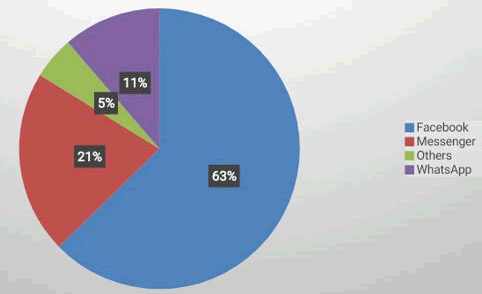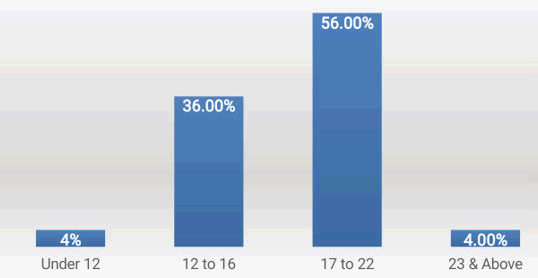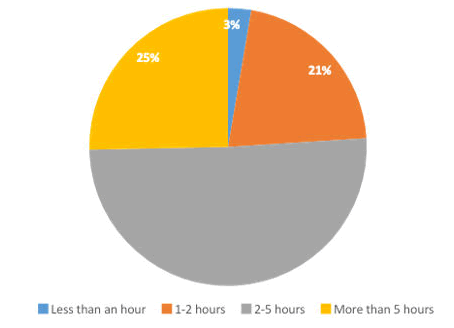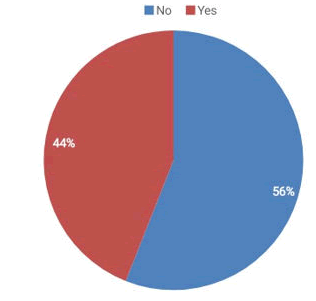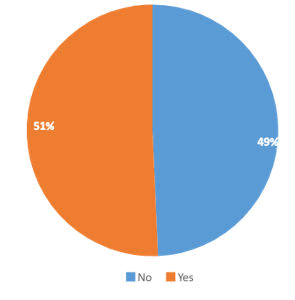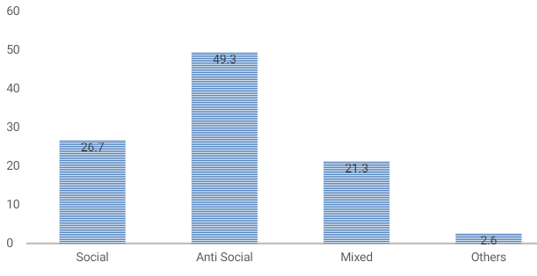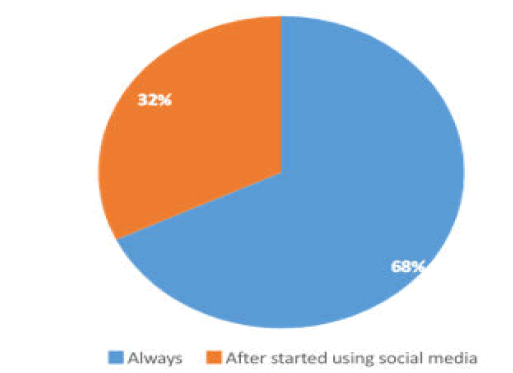Indexed In
- RefSeek
- Hamdard University
- EBSCO A-Z
- Publons
- Geneva Foundation for Medical Education and Research
- Euro Pub
- Google Scholar
Useful Links
Share This Page
Journal Flyer

Open Access Journals
- Agri and Aquaculture
- Biochemistry
- Bioinformatics & Systems Biology
- Business & Management
- Chemistry
- Clinical Sciences
- Engineering
- Food & Nutrition
- General Science
- Genetics & Molecular Biology
- Immunology & Microbiology
- Medical Sciences
- Neuroscience & Psychology
- Nursing & Health Care
- Pharmaceutical Sciences
Review Article - (2025) Volume 10, Issue 1
Social Media Addiction among Youths and Its Relationship with Being Antisocial: A Study on Bangladeshi Youths
Kazi Aftabunnahar*Received: 18-Oct-2023, Manuscript No. JFPY-23-23596; Editor assigned: 26-Oct-2023, Pre QC No. JFPY-23-23596 (PQ); Reviewed: 06-Nov-2023, QC No. JFPY-23-23596; Revised: 17-Jan-2025, Manuscript No. JFPY-23-23596 (R); Published: 24-Jan-2025, DOI: 10.35248/2475-319X.25.10.368
Abstract
Social media is a double-edged sword. It provides us with lots of information, to communicate with others, and numerous benefits in work, education, and indeed rest time. But excessive use of social media is harmful. According to a BBC report, using social media for more than two hours is regarded as an addiction. However, to date, no study in Bangladesh has examined social addiction among Bangladeshi youths and its relationship with being antisocial of them. This study investigated the situation of Bangladeshi youths' social media addiction and their reason for being antisocial. Participants have been chosen through stratified random sampling, divided into ages. And the survey has been completed through a Google form. After calculation, the results indicate that being unsocial because of using social media is very common in Bangladeshi youths. Continuing educational programs, reading books, creative works and spending more time with family and friends are recommended to get over this addiction.
Keywords
Social media; Youths; Addiction; Antisocial; Recommend
Introduction
Social Media (SM) are generally understood as media that foster social commerce, collaboration, sharing and participation. Shirky, an American writer argues that social media “increase our capability to partake, to cooperate, with one another, and to take collaborative action, all outside the frame of traditional institutional institutions and associations”.
Bangladesh was home to 44.70 million social media users in January 2023, equating to 26.0 percent of the total population. Among them 40.70 million users aged 18 and above. And the most used social media is Facebook which is 89.66%. Bangladesh has been among the top three nations contributing to the active user growth for Facebook as of December 31, 2022, according to Meta. The majority of Facebook users of Bangladesh, 67.9 per cent, is men and the largest user group, 2 crore, consists of people aged between 18 to 24 years in the country, according to the platform [1].
Another key word in my research is 'Antisocial', a state in which an individual lacks a sense of social belonging, true engagement with other peoples, and fulfilling connections. It is associated with increased morbidity and mortality. For illustration, antisocial or unsocial has been compared to rotundity in terms of implicit association with negative health goods. Also anti-social is known to be associated with unnatural increases in cortisol patterns, and these aberrant patterns can create disturbance in sleep, vulnerable function, and cognition. It also affects gene expression, negatively impacting vascular and most importantly mental health.
In view of these bolstering mechanisms, it isn't surprising that being anti-social can mainly increase the trouble for all-cause mortality. Nowadays most youths are facing this antisocial behavior because of the attraction of using SM. This study investigates how Bangladeshi youths are addicted to SM and being antisocial. This study also investigates how they get over this addiction and continue using SM. This study conducts a mixed method that includes an online survey consisting of 74 respondents and a short answer study online with the participants to know about how they've overcome their addiction to using social media [2].
Although our survey and interviews mostly include participants who are students. Our study reports.
• A large portion of the social media users in our study are or were addicted to social media, mostly Facebook.
• According to the majority of our SM addicted participants, the most faces fear of social interaction in the real world.
• The study also suggests that the majority suffers from mental illness and started getting addicted to SM.
These findings provide us a good understanding about social media usage of youths in the Bangladeshi context and the prevalence of being antisocial through these platforms [3].
Literature Review
According to a research by Research Gate named, 'A Study on Social Media Addiction of Young People during COVID-19 in Bangladesh', among young people of 67.5% people thinks about social media regularly during COVID-19 in a day. Also, 65% of respondents have used social media too much. Rather, 35% of respondents have used social media too little. On the other hand, 70% of participants have been addicted recently to social sites during COVID-19 [4].
In a study by Studuco, social media has a substantial impact on the youths of our country. It has increased significantly over the last few years. But like any other scientific or technological invention, there are both positive and negative sides of social media too. Therefore no one can claim social media has brought absolute positive or negative change in youth's social life. Although there exists some negative aspects of social media, but in most cases they are not working as a catalyst to dissocialize the youths. Most youths opened their social media accounts during their school or pre-university days. This is the period when they start getting acquainted with a lot of people. Getting socialized was then their principal objective for creating social media accounts. Most youths of today prefer to maintain their communication. According to them, there is no other platform parallel to social media through which they can interact with a huge number of people in a time-saving and cost effective manner. Moreover most youths like to spend time with previously known persons e.g. family members, relatives, friends, colleagues, associates etc. in social media. Besides face to face interactions, they like to interact with them over social media in their free time or even if they get little time out of their busy routine work. The main reason that has made social media so much popular is its diversified features and contents. It enables the youths to multitask. For example, some of them promote and manage their pages, some others like to keep an eye on their liked pages while some chat with others. And thus become antisocial in real life [5].
In an investigation report of Independent bd, The age group of 12-21 access to social media more than others. They are the vulnerable generation. The youth have developed a style of language to communicate with their peers over social media. They are found to conceal information from their parents and teachers so that they use a special type of language exposing themselves to online platforms in many ways. children smartphones to continue their education. But many times the young learners misuse the opportunity leading them to be addicted online.
Studies reveal that the teens and youth check their phones upwards of 150 times a day. It is well documented that every youth spends more than 3 hours on average in a day on social media. They do not want to miss any post by their peers; rather there is a constant competition to upload photos among themselves.
The youth are the greatest in number in using online platforms in the country and gradually, they are being isolated from the real touch of the world. They are found behaving in artificial taste leading to the verge of extinction of moral values in them which accelerate in choosing self-destruction, feeling hollowness in their minds as they hardly downturn themselves from online stand. The situation is like that they start developing friendships online and also break up online and this tendency growing in them deters them to face the real world.
According to a report of Pew Research Center, most educators feel students are more distracted than previous generations. This indicates that students of the present generation are becoming dull gradually due to online addiction [6].
So, the findings of the above literature review:
• COVID-19 is largely responsible for SM addiction of youth.
• SM addiction has both positive and negative effects. It has taught youth to multitask. To manage their facebook pages.
• Whether most youths are addicted to Facebook or not. They've a Facebook account.
• Youths are becoming dull and more distracted than the previous generation due to SM addiction [7].
Discussion
I followed an online survey for this study. After preparing, the survey was distributed through the online social networks. The survey consisted of a total of 8 questions combining numeric, categorized and also open-ended questions for the participants. The questions were designed to collect the respondents’ demographic information, the pattern of using social media, and different experiences of using social media. The survey was open to collecting responses for 2 weeks. A total of 75 participants responded to the survey. The quantitative portion of the data was analyzed using basic statistical tools [8].
As for the sampling method, Stratified random sampling was used to choose participants. Because the survey was accomplished in different ages of youths. Youth aged under 16, 17-21 and 22-26 were the 3 separate groups or strata [9].
Online survey
Among the 75 survey participants, the majority is male. 54.7% were male and 45.3% were female (Table 1).
| Gender | Male (54.7%) | Female (45.3%) | |
|---|---|---|---|
| Age | 22-26 years (66.4%) | 17-21 years (6.7%) | 16 and under (5.2%) |
Among the survey participant’s majority of them uses Facebook as their key social platform for communication which is 63.7%, 21.1% uses Messenger, 11.3% uses WhatsApp and the remaining 4.9% uses other social media sites (Figure 1).
Figure 1: Which social media use the most.
I tried to figure out the age from which the participants started to using social media. Among all participants the large (56%) percentage mentioned that they started using social media at the age of 17-22. Which indicates that people get addicted to social platforms at early ages. But at that age they already started to get mature. So it's a relief here. Next large number of participants are 12 to 16 aged people, 36% participants started using social media at that age which is slightly saddening (Figure 2) [10].
Figure 2: Age that started using social media.
In my survey, the next question is ‘How many hours do you use social media?’ Majority of the participants 51% mentioned that they used social media between 2 to 5 hours. It means they are addicted to SM. Next large number of participants, 25% who used social media more than 5 hours in a day, are much more addicted. Which means a total of 76% of participants are addicted to SM (Figure 3) [11].
Figure 3: How many hours do use in social media.
Then I wanted to know if they think they're addicted to SM. So I asked participants if they're addicted to social media or not. 56% cast their votes on No and other 44% said Yes that they get addicted (Figure 4).
Figure 4: Do you think you are addicted to social media.
Here we’ve seen in the previous result that 76% participants are addicted to SM. But 44% admitted that they are addicted to it. That means 32% of participants are using SM without knowing that they're addicted. And among the 56% participants, who think they ain't addicted, 50.7% almost 51% were addicted in the past (Figure 5).
Figure 5: Have you ever been addicted to social media.
My next question was, are they social or not in their perspective. The majority 49.3% percent that means almost 50% claim themselves as antisocial and 26.7% can say that they're social person (Figure 6).
Figure 6: Whar are you in your perspective.
And among the 49.3% participants who are antisocial, 32.1% claimed that they've been antisocial after started using SM (Figure 7).
Figure 7: If you re an antisocial then you ve been an antisocial.
Open-ended questions' review
In the survey I threw an open ended question to the participants regarding how they overcome this addiction if they were addicted to SM and reply were:
• I got addicted to social media during Corona. Because I had nothing to do in my spare time. When the situation normalized and regular classes started in the varsity, my addiction subsided because I got busy with my studies.
• I have reduced the use of mobile phones. Spent free time with family members or outdoors. Read books or magazines at night without using social media
• I uninstall all social media sites and communicate with people throughout verbal form.
• Realizing that it decreases productivity and kills time.
• Stopped the Internet from choosing what I watch/read and kept only the things of my interest in my social media feeds. I also got back to the things I enjoyed doing before social media came into my life. So, to put it simply, my hobbies came in and social media overuse went away.
• When I don't have anything important to do, I get addicted to social media, I watch videos for a long time. But it’s not like I can't get over this. I can get over Alhamdulillah easily. I try to focus on my health to get over this.
• Make one engrossed with productive things.
• It's all about how you try to spend your time, how busy you are. Now I am busy with my work and other work and it takes me away from this social media addiction. But I use social media for my studies, work and career purposes. I don't think it counts as an addiction. But sometimes and earlier I used it for no reason, just for entertainment and communication purposes. But now I transform it in my studies, work and education as well. But I also use it for my entertainment, communication and other purposes. So I would say that by changing your process of using it you can get rid of its addiction.
• I was focused on my study and ambitions. Spent more time with family, friends. Started reading more books.
• By some creative work.
• By keeping myself busy.
• Through sports.
• Read a lot of story books. It helps me a lot.
• Keeping myself engaged in other activities.
Few participants said reading books and passing time with family helped them. Some said they reduced the use of mobile phones. And few of them still couldn't overcome SM addiction. And some are trying to get over this addiction and be social.
Conclusion
Social media has become integrated in youth's lives. The utmost youths enjoy smartphones that have unlimited access to the internet and social media apps. Social media allows a person to accept requests from followers or friends, which provides access to the person's profile, prints, and posts. For most people, this is an accessible way to keep in touch with family and friends. Still,youths who use social media are susceptible to social media dependence and become unsocial. When youths have a dependence on social media, their schoolwork, real-life social relations can suffer. Social media dependence is a behavioral situation that youths develop that causes them to be preoccupied and obsessed with social media. Thus they become unsocial and to avoid social interaction they become addicted more to SM. However, to save the youth from this menace, family, society and the state can play an integrated role. Parents cannot deny their responsibilities in this regard. Until we realize the irreparable loss of the children due to social media addiction, it is tough to address the situation.
Limitations
While this study reveals many important aspects of obsession with social media, there are several limitations in this study, too. Firstly, most of the participants were from the capital, Dhaka. Also, most of them fall into the age range 22-26 years. And victims who were under 16 years of age were very difficult to reach. As a result, the findings of this study should not be generalized over the whole Bangladeshi people of all ages. Besides, these findings were primarily focused on youth although some older also get antisocial because of excessive use of social media in Bangladesh. I expect that furthermore research will be conducted in this field in future to lighten up these limitations and to obtain a more comprehensive knowledge regarding addiction of youths to social media and its relationship with being antisocial in Bangladesh. However, despite all these limitations, I believe that this study still delivers some important information about the addiction experiences through social media.
References
- Malik S, Bansal R, Tyagi AK. Impact and role of digital technologies in adolescent lives. IGI Global. 2021:26.
- Balkin RS, Winburn A, Schmit EL, Mendoza SM. Counseling Youth: Systemic Issues and Interventions. Oxford University Press. 2023.
- Kerfoot M, Butler A. Problems of childhood and adolescence. Bloom Publish. 2016:3.
- Melde C, Weerman FM. Gangs in the era of internet and social media. Cham, Switz: Springer. 2020;13.
- Nesi J, Telzer EH, Prinstein MJ. Handbook of adolescent digital media use and mental health. Cambridge University Press. 2022;14.
- Desjarlais M. The psychology and dynamics behind social media interactions. IGI Global. 2019;26.
- Bozoglan B. Psychological, social, and cultural aspects of internet addiction. IGI Global. 2017;8.
- van den Bos W, Vahl P, Guroglu B, van Nunspeet F, Colins O, Markus M, et al. Neural correlates of social decision-making in severely antisocial adolescents. Soc Cogn Affect Neuro Sci. 2014;9(12):2059-2066.
- Aftabunnahar J. Social Media Addiction Among Youths and Its Relationship With Being Antisocial: a Study on Bangladeshi Youths. Available at SSRN 4589425. 2023:24.
- Islam MS, Sujan MS, Tasnim R, Mohona RA, Ferdous MZ, Kamruzzaman SK, et al. Problematic smartphone and social media use among Bangladeshi college and university students amid COVID-19: the role of psychological well-being and pandemic related factors. Front Psychiatry. 2021:16;12:647386.
- Sajithra K, Patil R. Social media–history and components. J Bus Manag. 2013;7(1):69-74.
Citation: Aftabunnahar K (2025) Social Media Addiction among Youths and Its Relationship with being Antisocial: A Study on Bangladeshi Youths. J Foren Psy. 10:368.
Copyright: © 2025 Aftabunnahar K. This is an open access article distributed under the terms of the Creative Commons Attribution License, which permits unrestricted use, distribution, and reproduction in any medium, provided the original author and source are credited.


